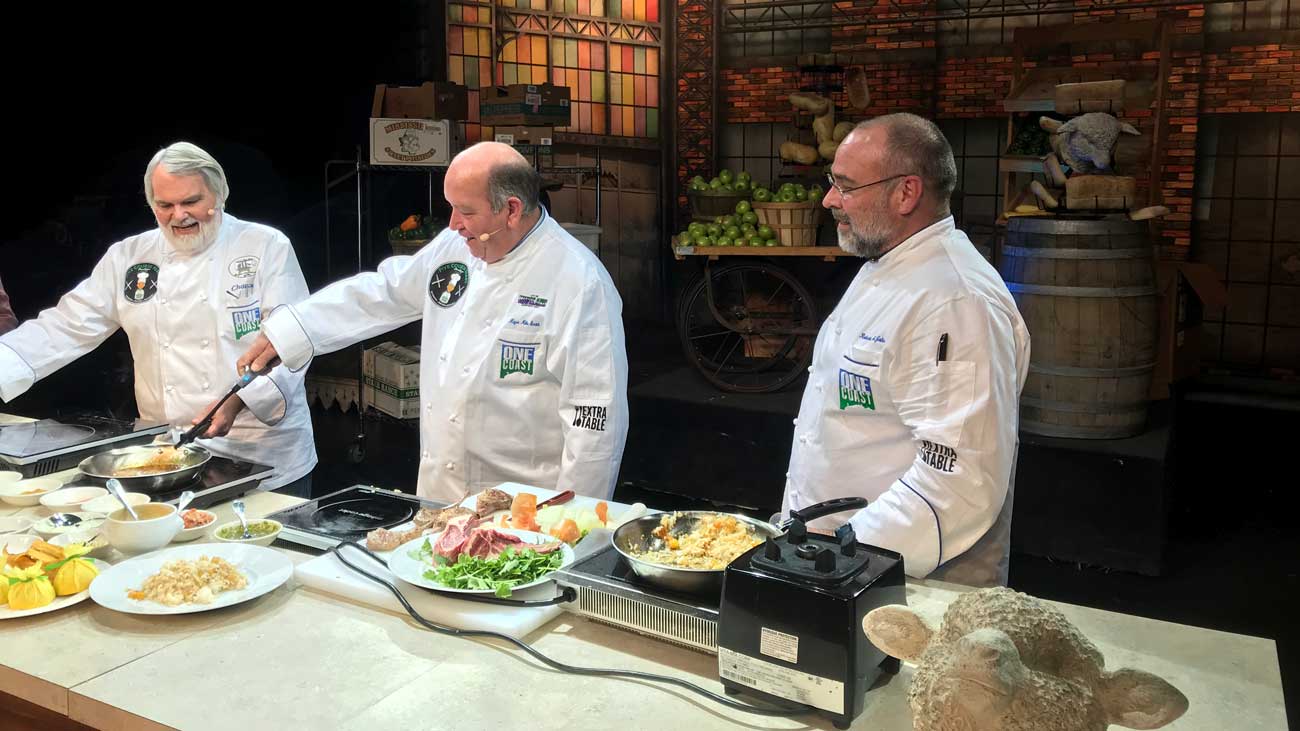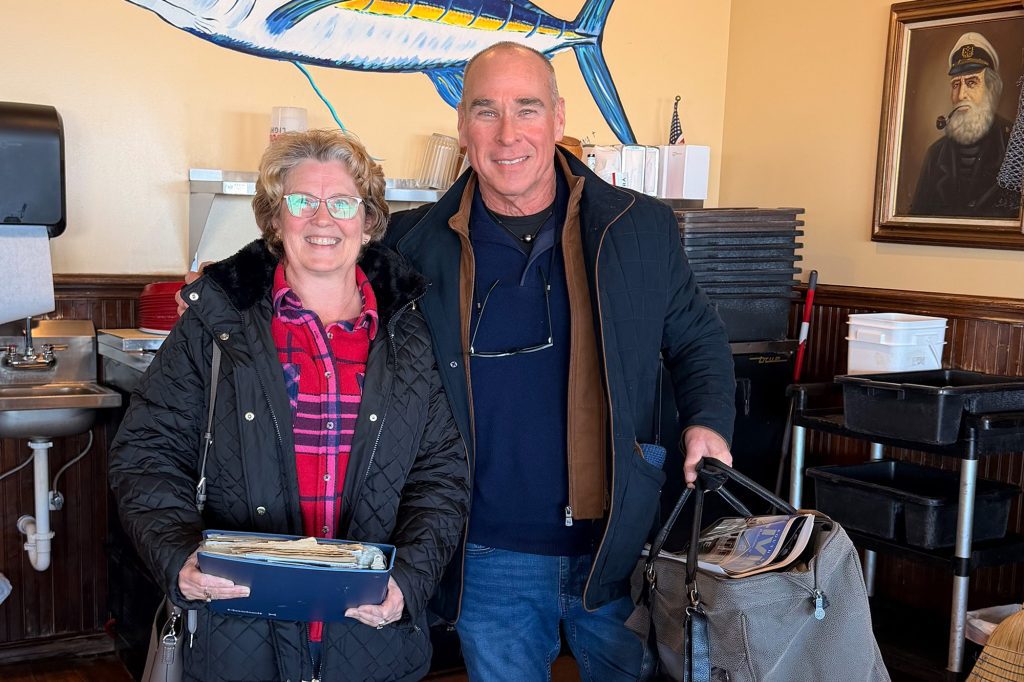I grew up, and still live, in a small town in South Mississippi.
It’s a college town that has a surprisingly diverse population for a relatively small municipality in the Deep South. I often wonder how people who weren’t born here wound up here.
Out of all of the towns from coast to coast, how did the Greek immigrants who founded our downtown dining establishments settle on my hometown of Hattiesburg at the turn of the last century? The port of entry for their ancestors was New York. There are thousands of towns between here and there. How did they end up here?
We also have a very diverse culinary population. Sure we have run-of-the-mill Mexican restaurants and copycat Chinese buffets, but there have been eight sushi restaurants that have opened in the last decade. We have two Mediterranean/Greek restaurants, two Thai restaurants, and an authentic Mexican restaurant, all operated by people who know the cuisine of their home country.
No one took a more interesting path to Hattiesburg, Mississippi than Bordean Pienpermpat— Dean, for short.
Dean owns and operates Jutama’s, one of Hattiesburg’s Thai restaurants. He was born in Thailand, moved to the United States in 1974, and ended up in New York when he was 22-years old. He began working his way up the Manhattan restaurant ladder from sandwich man, to server, bartender, and manager at various casual restaurants. In 1989 he saw a “now-hiring” ad in the New York Times for the famous Essex House hotel on Central Park South.
At the Essex House he worked as a server under four-star Chef Christian Delouvrier, recently of Bouley and Lespinasse, who is still considered one of the best French chefs in the city.
In June of 2000, world-renowned chef, Alain Ducasse and his Michelin stars came to town to open Alain Ducasse in the Essex House. Ducasse was the first chef to have garnered three Michelin stars operating restaurants in three different cities, and has gained 19 Michelin stars during his career. Dean spent eight years on his staff serving $300.00 truffle menus and true French soufflés to the likes of Bill Cosby, David Bowie, Walter Cronkite, and the entire cast of “Friends.” “Robert DeNiro always came in on Sunday,” Dean says.
In 1998 a group from Dubai bought the hotel and paid Dean a lump sum in a union buyout. He moved to Florida and traveled back and forth to Thailand until he heard from a friend, Nitchamol Rice, about a Thai restaurant for sale in Hattiesburg, Mississippi. Rice, who goes by “Kitty,” and Dean partnered up in 2009 and the only day off the two have had since then was Thanksgiving Day 2010.
Jutama’s is located in a building that housed a breakfast joint/meat-and-three diner where local men drank coffee in the morning, and day laborers ate chicken-fried steak, turnip greens, and yeast rolls at lunch. Its cinder block walls are now painted green and are adorned with Thai art— a long way from coffee, cigarettes, and local politics.
Dean, who looks like the Thai Martin Sheen— a celebrity he has served often— manages the dining room and Kitty mans the stoves. I’ve eaten in many authentic restaurants in both New York and San Francisco’s Chinatowns, and have eaten Thai cuisine in restaurants from D.C. to Chicago, but I still have never had fried rice better than at Jutama’s across the street from the Chevrolet dealership in Hattiesburg, Mississippi.
The Drunken Noodles, green curry, yellow curry, and Gang Dang— a dish remembered from the partners’ youth in Thailand— are all excellent examples of Thai cooking, with touch. The components are intense, yet the end results are subtle and refined. Like Ducasse, Dean focuses on ingredients and is committed to fresh products even if it takes a little more effort or causes him to sacrifice a little more profit.
In the Oriental restaurant business so many restaurants purchase the same products from the same suppliers, and that is why the sauce at one establishment tastes exactly like the sauce at another. They are merely opening a number 10 can of processed food. Not so at Jutama’s. Dean is all about the “details,” again, Ducasse. He knows the difference between cilantro and Italian parsley, and goes to the market daily for fresh seafood.
Jutama’s is one of those eateries that always makes me stop and say, “I’m just glad that I live in a town that has this restaurant.”
When asked how he likes Hattiesburg, the affable Dean states, “I love it!” When pressed he cites several instances of Southern hospitality that have impacted him since moving here. In the end, it’s family or opportunity that brings people here, but it’s the hospitality that makes them want to stay.
Chicken Skewers with Georgia Peanut Dipping Sauce
Make sure and use fish sauce and coconut milk when making the peanut sauce. No substitutes.
Skewer Soak
1 cup water
1 Tbl soy sauce
1 /4 cup coconut milk
20 6-inch wooden skewers
Combine water, soy sauce and coconut milk together and soak the skewers in the mixture for 2-4 hours. Use a plastic-wrapped weight to keep the skewers submerged in the mixture.
Chicken Marinade
1 /4 cup pineapple juice
2 Tbl soy sauce
1 tsp minced garlic
1 Tbl sesame oil
1 /4 cup Thai chili sauce
1 pound boneless skinless chicken breasts, cut into 20 strips
2-3 Tbl peanut oil
Thread the chicken on to the soaked skewers, leaving a small portion of the skewer empty so that it canbe picked up after cooking.
Combine pineapple juice, soy sauce, garlic, sesame oil and chili sauce.
Pour marinade over the chicken skewers and allow them to soak for 3-4 hours. The chicken should be refrigerated while marinating.
Preheat oven to 375.
Over high heat, heat enough peanut oil in a large, non-stick skillet to lightly coat the surface. Drain the marinated skewers. Sear the chicken skewers six to seven skewers at a time. Flip skewers after one or two minutes and brown other side. Once both sides are browned, place skewers on a baking sheet. Repeat process with remaining skewers, working in small batches, and adding oil to the pan as needed until all skewers have been seared. Hold until party time.
Bake skewers for five to six minutes and served with Georgia Peanut Dipping Sauce.
You may marinate and sear the skewers one day in advance. Wrap and store in the refrigerator until party time. Let skewers sit at room temperature 15 minutes before baking.
Georgia Peanut Sauce
In addition to the chicken skewers, this can be used in a cold pasta salad with fresh Asian vegetables or a sautéed shrimp pasta with garlic and snow peas.
2 Tbl peanut oil, divided
1 cup unsalted peanuts
1 Tbl shallot, minced
1 Tbl ginger, minced
2 cloves garlic, minced
2 tsp fresh jalapenos, minced
1 /2 c coconut milk
1 /4 cup rice vinegar
1 /4 cup cottonseed oil
1 /4 cup warm water
2 tablespoons soy
1 lime, juiced
1 /2 tsp lime zest
2 Tbl cup fresh cilantro, chopped
1 /2 tsp salt
1 /4 tsp cayenne pepper
In a skillet heat 1 Tbl of the peanut oil and sauté the peanuts until golden brown (approximately 4 to 6 minutes). Drain peanuts on paper towels.
Heat the remaining peanut oil and cook shallots, ginger, garlic, and jalapeños over low heat 4-5 minutes. Add the coconut milk and vinegar and simmer slowly for 5 minutes.
Place peanuts into the simmering liquid and continue to cook 5 minutes. Remove from heat and allow to cool 10 minutes.
Transfer mixture to a blender and puree until smooth. Continue to blend, adding in remaining ingredients (If the sauce is too thick, add bit more warm water).
The sauce may be made several days in advance. Store in an airtight container in the refrigerator. Best when served at room temperature.



